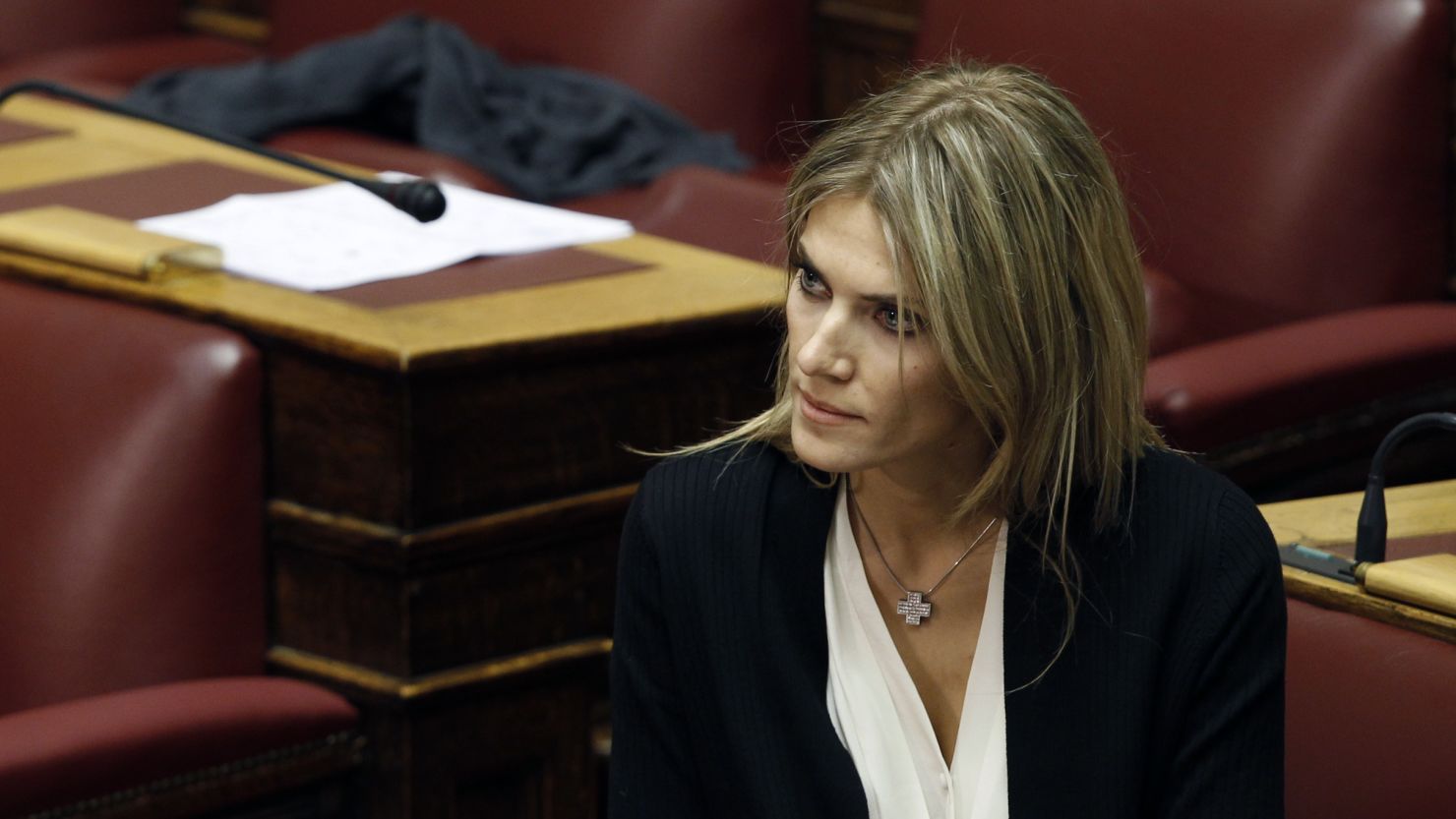The European Union has spent the past few days reeling from one of the worst scandals to hit Brussels in decades.
Belgian police said late last week that they had carried out raids and arrested four people in connection with an ongoing corruption probe into alleged payments and gifts from Qatar to members of the European Parliament (MEPs) and their staff.
The investigation?targets alleged acts of “corruption” and “money laundering” by an organized group aiming to “influence the economic and political decisions of the?European?Parliament” through money and gifts, Belgian public broadcaster and CNN affiliate RTBF reports, citing the prosecutor’s office.?
The most prominent of those arrested is Greek MEP Eva Kaili, who at the time of her arrest was one of 14 vice presidents of the Parliament, a role of which she has since been stripped. Both Qatar and Kaili have denied any wrongdoing.
Kaili did not appear at a scheduled hearing on Wednesday, and was remanded in custody until she appears before a court on December 22, Belgium’s federal prosecutor’s office said Wednesday.
Federal prosecutors confirmed a “large-scale investigation” was conducted into the alleged criminal activity, corruption, and money laundering activities within the European Parliament on Wednesday. Kaili and three other people were arrested Friday over an ongoing corruption probe into alleged payments and gifts by Qatar to the parliament’s members and staff conducted by the Belgian Federal Prosecutor’s Office.
Kaili, who has spoken in defense of Qatar in the European Parliament, traveled to Qatar shortly before the start of the soccer World Cup.??
In response to criticisms of Qatar over?allegations of human rights violations and its treatment of migrant workers, Kaili told MEPs on November 21:?“Today, the FIFA World Cup in Qatar is a proof actually of how sports diplomacy can lead to a historic transformation of a country whose reforms have inspired the Arab world … Qatar is a leader in labor rights.”??
Belgium’s Federal Police published on Wednesday on their official Twitter account an image of what they said was some of the cash that has been seized as part of the investigation.
“As part of a case of the Federal Prosecutor’s Office into suspected corruption by people active in the European Parliament, the Federal Judicial Police seized nearly 1.5 million euros during searches carried out in the Brussels region,” Belgium’s Federal Police said in the tweet.
While this scandal has rocked Brussels, the allegations have come as no great surprise to those who know the European institutions, especially the Parliament.
“The Parliament has tolerated a culture of impunity for years,” says Nicholas Aiossa, deputy director of Transparency International EU, an anti-corruption organization. “There is virtually no oversight or repercussions for the way that MEPs spend their allowances and we have seen those funds misused so many times.”
Aiossa believes that institutional corruption is only a small part of what would make an MEP such an inviting target for those seeking to influence European politics.
“The Parliament collectively has a lot of power over the direction of policy that provides access to an enormous market of over 400 million citizens. The MEPs themselves, however, often have a very low profile outside of the Brussels bubble, which probably helps avoid scrutiny.”
Human rights resolution
It’s not just in policy that MEPs can use their position to leverage power. Bill Newton Dunn, a former British MEP, explains that “when the European Parliament publishes a resolution on a major issue, the international media very often picks it up as the voice of Europe. Collectively, the voices of MEP do carry weight.”
In fact, Kaili’s November 21 intervention in support of Qatar came during the debate on a resolution on human rights in Qatar ahead of the World Cup. The resolution was eventually passed three days later.
Katalin Cseh, a sitting Hungarian MEP who negotiated the wording of the resolution, told CNN that getting it published was particularly difficult because MEPs from the two main groups in the Parliament were resistant to it being too harsh on Qatar.
“In retrospect, knowing what we know now, it is very alarming that my colleagues were pushing back so hard on this resolution. It’s disturbing that the influence of third-party autocrats might have infiltrated our negotiations.”
It will probably be some time before we know exactly what happened and if lobbying rules were broken. If reforms need to be made, the process will no doubt be painful and arduous.
However, activists who have been pushing for anti-corruption reforms for years can take some small comfort in the fact this scandal has broken at exactly the right moment for it to receive maximum coverage, something that so often evades the remote bubble of Brussels politics.
CNN’s Zahid Mahmood and Sharon Braithwaite contributed to this report.



